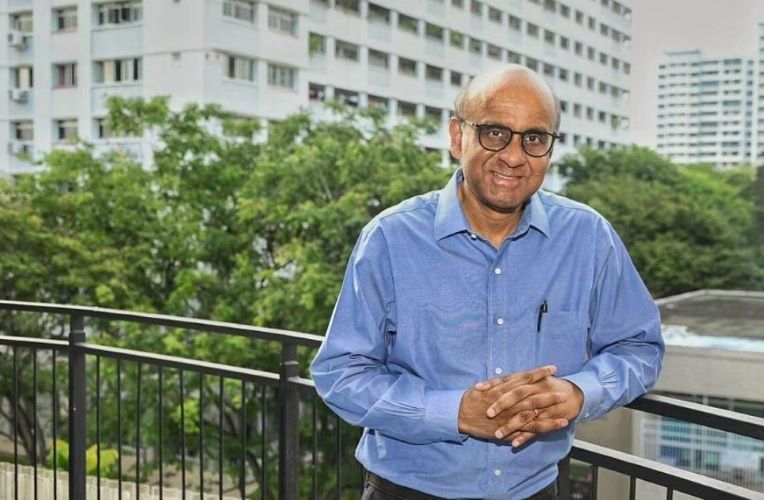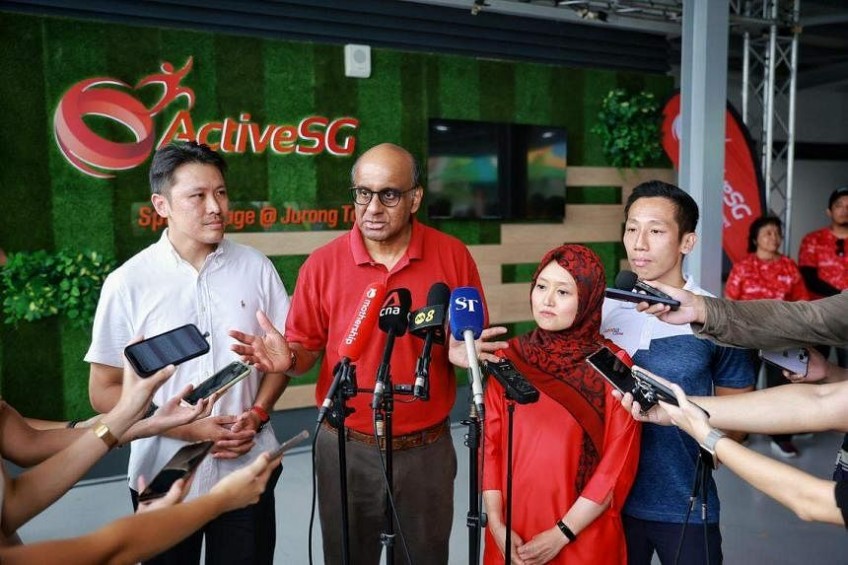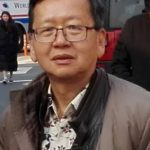
Ruling People’s Action Party, which had dismissed the sample survey as not reflective of the electorate’s support for a Non-Chinese head of government, has implicitly endorsed the popular 66-year-old Tharman Shanmugaratnam for president
By Ivan Lim
Singapore is in the thick of a presidential race with a hot favorite for Prime Minister in a 2019 social media poll throwing in his hat.
In a surprise turn, the leaders of the ruling People’s Action Party, which had dismissed the sample survey as not reflective of the electorate’s support for a Non-Chinese head of government, has implicitly endorsed the popular 66-year-old Tharman Shanmugaratnam for president.
At stake is the office of head of state, who is elected with the mandate to block a populist government from depleting the national reserves or from appointing unqualified cronies to top posts in the government, aside from his ceremonial roles.
The president’s custodial role was mooted in 1984 by founding Prime Minister Lee Kuan Yew and enacted into law in 1992. “We need a wise person in that job to play the goalkeeper, and the council of presidential advisers are fullbacks and halfbacks, to prevent stupid people, your own players, kicking into our own goal,’’ he had declared.
To vie for the non-partisan presidential post, Mr. Tharman, Senior Minister and Coordinating Minister for Social Affairs, announced he would cut his party ties and shed his government portfolios on July 7.The incumbent, Ms. Halimah Yusof, leaves office on Sept 13 after completing a six-year term as the eighth president.
He has received the blessings of Prime Minister Lee Hsien Loong, who told Mr. Tharman in an exchange of letters, his Cabinet “will miss your leadership, insightful views and wise counsel’’
The London School of Economics and Harvard-trained economist, known for his socialist views and his common touch, polled above 70 per cent votes in his first foray into electoral politics. It was a feat he repeated over 22 years in politics, marked by his helming various ministries like Education and Finance before becoming Deputy Prime Minister (2019) and Co-ordinating Minister Social and Economic Policies (2015-2019).Since 2011, he has been overseeing the central bank as chairman of the Monetary Authority of Singapore as well as the deputy chairman of state sovereign fund, Government of Singapore Investment Corporation.
Mr. Tharman is married to Ms. Jane Ittogi, a lawyer. The couple has four children
Why did the PAP let go of such a popular and seasoned figure for the high-stakes presidential contest, some observers asked.
 One view is the the PAP is fielding the heavyweight minister to counter the prospect of a face-off with formidable rivals such as Mr. Lee Hsien Yang, the PM’s estranged younger brother, and member of the opposition Progress Singapore Party. The duo are at loggerheads over their father Lee Kuan Yew’s legacy centering on the family mansion at 38 Oxley Road.
One view is the the PAP is fielding the heavyweight minister to counter the prospect of a face-off with formidable rivals such as Mr. Lee Hsien Yang, the PM’s estranged younger brother, and member of the opposition Progress Singapore Party. The duo are at loggerheads over their father Lee Kuan Yew’s legacy centering on the family mansion at 38 Oxley Road.
Another factor is that in the current stage of transition to a fourth generation leadership headed by Finance Minister and Deputy Prime Minister Lawrence Wong Shyun Tsai, 50, it makes sense to promote a Prime Ministerial-caliber leader like Mr. Tharman as non-partisan head of state.
“A Tharman presidency will offer an extra and expert hand as Lawrence Wong and team take over … It would be foolish to lose his contribution,” says veteran columnist Tan Bah Bah.
The Singapore politician has been touted as a potential chief of the International Monetary Fund, having been the first Asian chairman of the IMF Monetary and Financial Committee.
Indeed, the presidency offers the internationally-acclaimed economist an appealing alternative to landing a top post in the IMF or the United Nations. He is also chair of the G-20 Eminent Persons Group on Global Financial Governance
Having the internationally-renowned Tharman as President will not only retain talent at home but also help enlarge the republic’s profile abroad,
As Singapore’s President, he can be expected to carve out a higher profile international role for himself and the nation.
The government can leverage on his ability to influence and shape global trends amid the fierce geo-political contestation between United States and China.
In particular, the “Little Red-dot city-state” may get to highlight its views on peace, security, climate crisis and sustainable development issues at the Summit of the Future to be held in New York in 2024 with Mr. Tharman on the UN-appointed 12-member advisory board seeding ideas for the meeting.
But in the run-up to the presidential election, the front-runner faces challenges.
By and large, the public gave the potential President top marks for the symbolic role of “representing the unity of Singaporeans of all races, religions, social backgrounds and political leanings”.
But on the president’s custodian duties, questions have been raised over his PAP background and whether he could or would act firmly and independently when it comes to overseeing government drawing on the national reserves. Analysts deduced from his statements on the president’s responsibilities and his consensual decision-making style that he is more likely than not, to act, albeit in a collegial style without ruffling feathers or creating a rumpus.
The Prime Minister has expressed confidence that the outgoing Senior Minister would “carry out these duties scrupulously” and with “independence of mind”.
However, critics have long rejected the PAP’s claim that it is capable of monitoring its own actions and correcting any wrong-doing. They dismissed this so-called “Ownself Check Ownself” system as a tactic to avoid public scrutiny.
In response to such criticism, Mr. Tharman argued that as elected President, he would not be in the same team as the government. He also likened his future role to a “referee” overseeing a game, indicating he would not hesitate to blow the whistle on any foul play.
After the 2017 presidential election, – reserved for Malay candidates – went uncontested, the public is keen to see a contest in the open presidential polls due in September.
There was a little stir on June 12 when a Malaysian-born Singaporean tycoon and diplomat Mr. George Goh Ching Wah, 63, announced his surprise entry into the fray. Casting himself as an “independent” candidate, he hopes to court the votes of those who prefer a non-Establishment figure as head of state, better able to oversee the nation’s reserves without fear or favor.
However, he has yet to receive his certificate of eligibility to take part in the election.
A private sector candidate must fulfill the constitutional criteria of being a chief executive of a company with at least $500 million in shareholder equity for three years running and show a profit after tax throughout.
While Mr. Goh, group executive chairman of Ossia International, and owner of seven listed companies with a collective value of S$3.15 billion and erstwhile Singapore’s non-resident Ambassador to Morocco, is confident of qualifying as a presidential contestant in this election, the decision will be made by the Presidential Election Committee soon.
By George, those in his camp are keeping their fingers crossed that this time round it will not be a one-horse race.
______________
 Ivan Lim is a senior journalist based in Singapore. He is former President of Asia Journalists Association.
Ivan Lim is a senior journalist based in Singapore. He is former President of Asia Journalists Association.